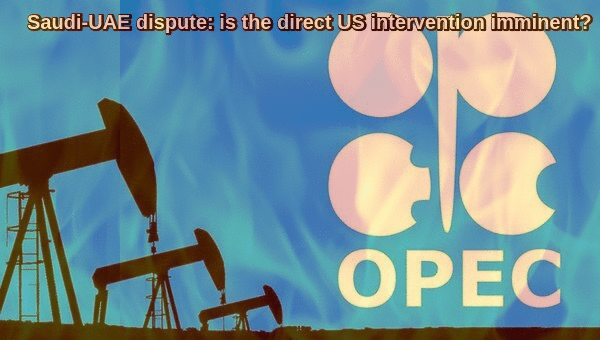With no prospect of the next OPEC+ ministerial
meeting to get round the impasse involving its key players in the Middle East,
the likelihood of the direct intervention by the US has increased dramatically.
Since the price of crude oil rose to the highest in
three years, the price at pumps has worried both economists and key policy
makers in the West; the inflationary pressure is growing which could
potentially derail the feeble revival of the economies across the world; the
emergence of new variants of the Coronavirus is not encouraging news either.
The White House admitted that the US administration
took up the issue with the relevant parties in the OPEC+. By coincidence, the Deputy
Saudi defence minister travelled to the US on Tuesday to meet the Pentagon
officials.
“We’re not a party to these talks but over the
weekend and into this week, we’ve had a number of high-level conversations with
officials in Saudi Arabia, the UAE and other relevant partners,” said Jen Psaki,
the White House press secretary.
She, however, said that the US administration is
monitoring the global supply and made it clear that the Biden administration
wanted the American to have access to affordable and reliable energy; she
implied the how serious the team is about the price of oil at the pumps.
The price of crude oil, meanwhile, stumbled in
response to the new development, despite the stalled talks over reviving the JCPOA,
2015 Iranian nuclear deal; the possibility of Iran returning to the crude oil
markets as a normal player looks bleaker than it was few weeks ago.
Analysts believe when the deputy Saudi defence
minister is back in the Kingdom, there will be some movements to restart the
negotiations of the OPEC+, with the UAE and Saudi Arabia finding some common
ground to reach a compromise.; it remains to be seen, though.
Saudi Arabia has taken some harsh economic measures
against its long-term ally, the UAE; the UAE has not responded in kind – a good
sign that the dispute may be resolved with the US help.







